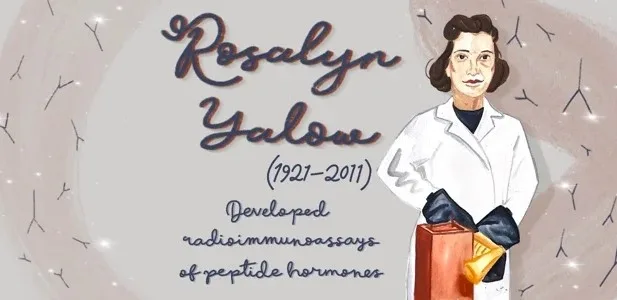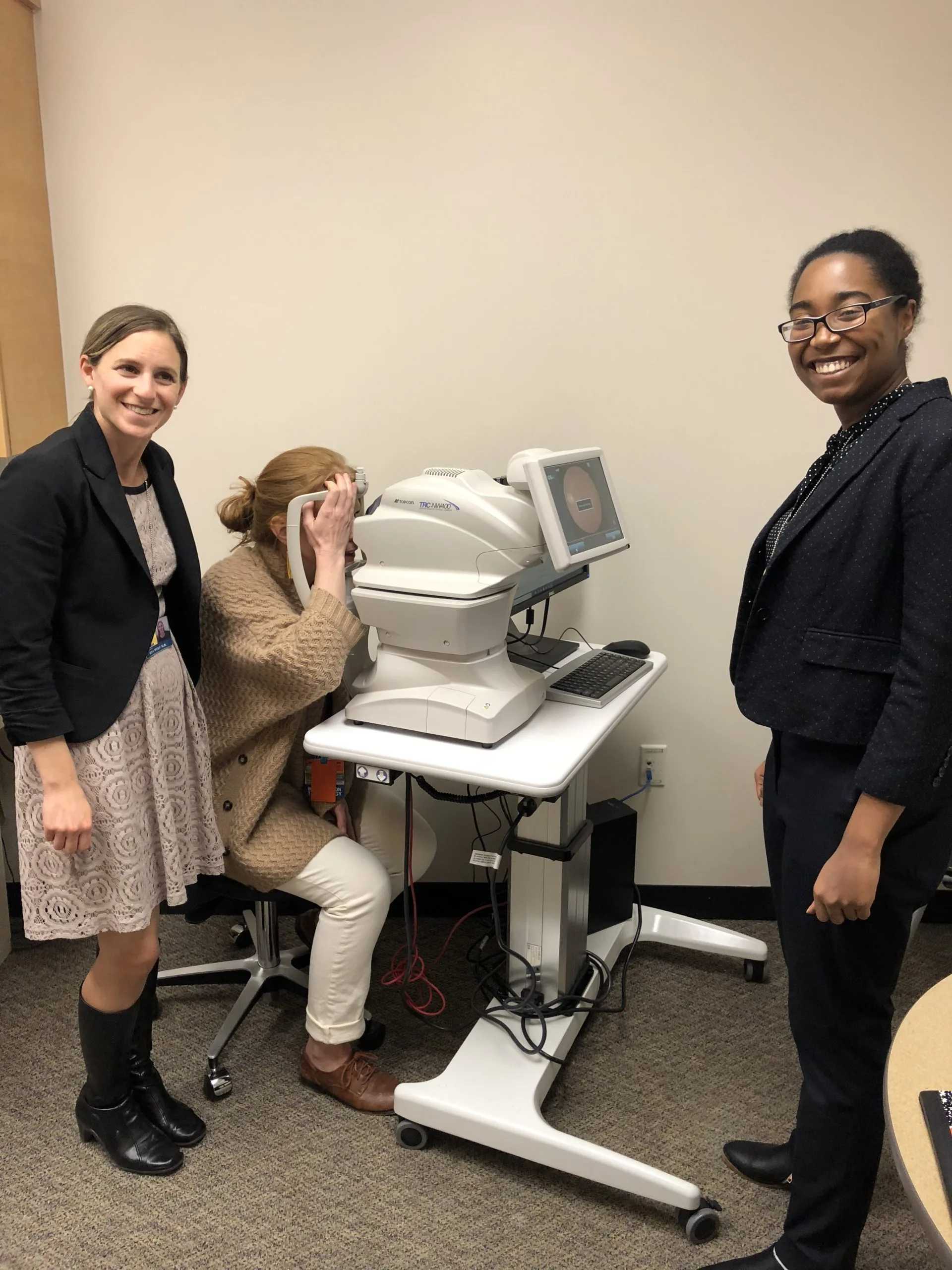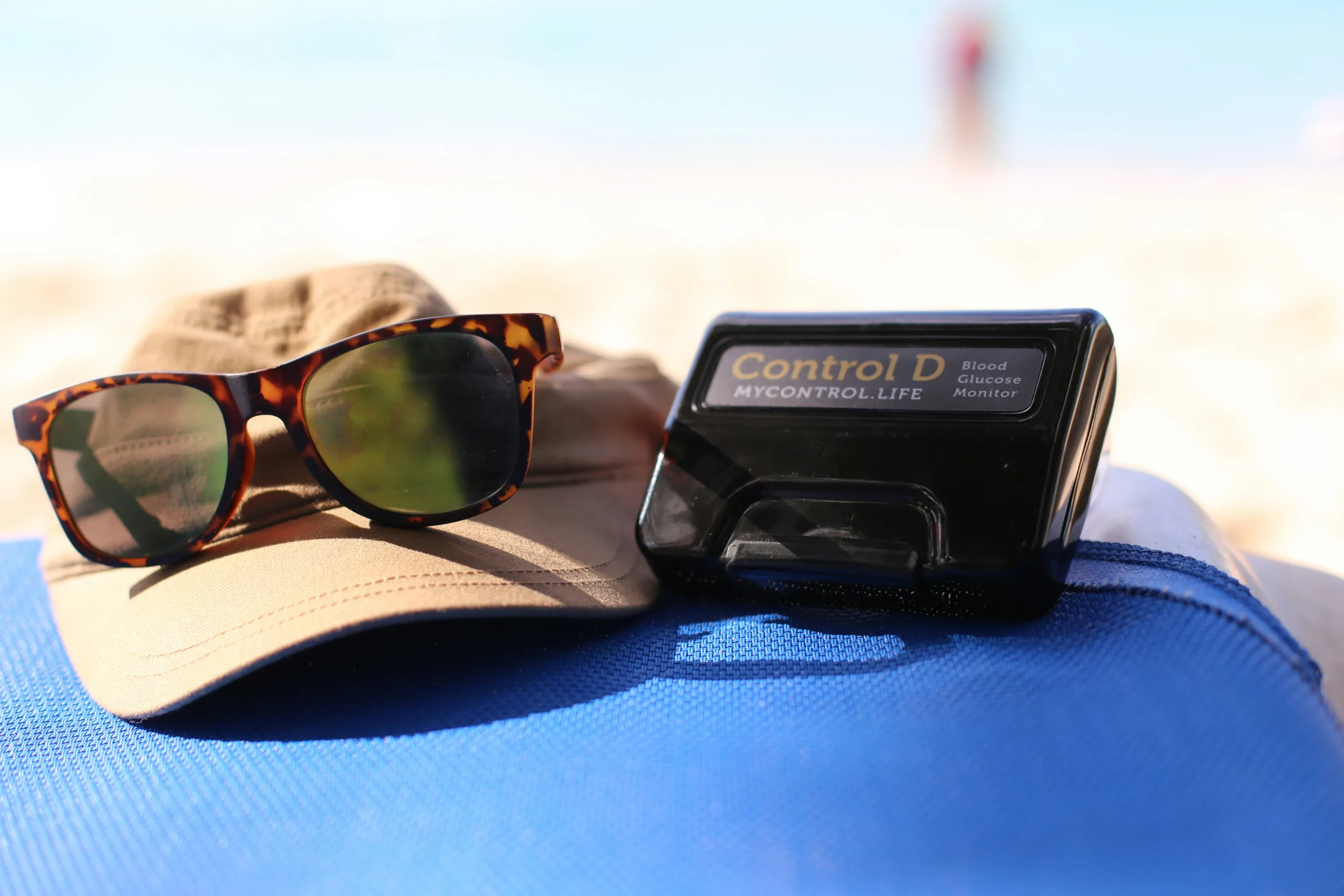March marks Women’s History Month, a time to celebrate the remarkable achievements of women across all areas of life. This year, we shine a spotlight on an extraordinary figure in the realm of science and medicine, Dr. Rosalyn Yalow. As a trailblazer in medical physics, Yalow’s pioneering work not only carved a path for women in a field dominated by men but also revolutionized our understanding of diabetes.
Her development of the radioimmunoassay (RIA) technique was a breakthrough that allowed for the precise measurement of insulin levels in the blood, fundamentally altering our approach to diagnosing and managing Type 1 and Type 2 Diabetes. As we delve into Yalow’s journey and legacy, we celebrate not just a Nobel laureate, but a woman whose determination and brilliance continue to inspire diabetes research and the quest for knowledge.
Join us as we explore the impact of her work and the ongoing efforts of the Diabetes Research Connection in advancing the field of diabetes research.
Early Life and Career
Born in 1921 in New York City, Rosalyn Yalow was a force from the start. Her passion for science and mathematics was evident early on, leading her to pursue physics against the societal norms of her time. Yalow graduated from Hunter College in 1941 and faced significant hurdles in advancing her career due to gender biases in science. Undeterred, she earned her Ph.D. in nuclear physics from the University of Illinois, a rare feat for a woman in the 1940s.
Yalow’s career in medical physics began at the Bronx VA Hospital, where she joined forces with Dr. Solomon Berson. Together, they embarked on research that would lead to the development of the radioimmunoassay (RIA). This innovation was not just a scientific breakthrough; it was a beacon of hope for millions of people with diabetes.
Yalow’s journey from a young girl fascinated by numbers and patterns to a Nobel Prize-winning physicist is a testament to her resilience and dedication. Her early struggles and subsequent triumphs underscore the importance of supporting and empowering aspiring scientists, particularly women, in their research endeavors.
The Development of Radioimmunoassay
By 1959, Dr. Rosalyn Yalow and Dr. Solomon Berson had developed the radioimmunoassay (RIA), a revolutionary technique that utilized radioactive isotopes to measure minute quantities of biological substances in the human body, including hormones, vitamins, and enzymes. Their focus on insulin opened a new chapter in diabetes research.
The essence of RIA lies in its ability to detect and quantify insulin levels in the blood with unparalleled precision. Before their innovation, understanding the intricate dance of insulin within the human body was a challenge that left many aspects of diabetes shrouded in mystery. This method illuminated how insulin functions and interacts within the bloodstream.
The impact of RIA on diabetes research was profound. For the first time, scientists could accurately measure insulin levels in patients with Type 1 and Type 2 Diabetes, leading to a deeper understanding of these conditions. This not only challenged existing misconceptions but also paved the way for the development of more effective treatments and management strategies.
The legacy of Yalow’s work extends beyond diabetes, influencing numerous fields of medical research and diagnostics. Yet, it is her contribution to unraveling the complexities of diabetes that stands as a testament to her innovation and dedication.
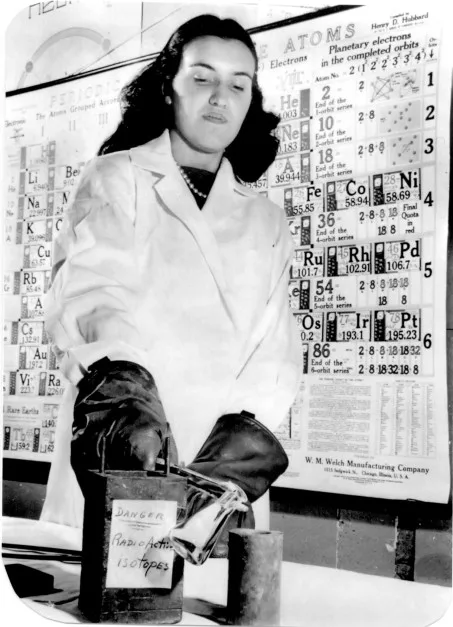
Impact on Diabetes Research
Before RIA, the medical community’s grasp of the dynamics of insulin in the human body was limited. Yalow’s work brought to light the critical distinctions between Type 1 and Type 2 Diabetes, fundamentally shifting the approach to treatment. For individuals with Type 1 Diabetes, where the body fails to produce sufficient insulin, and those with Type 2 Diabetes, characterized by the body’s inefficient use of insulin, RIA provided the tools needed for more targeted and effective management strategies.
The implications of this research extended far beyond the laboratory. It informed the development of insulin therapies that are more closely tailored to the needs of individuals, enhancing the quality of life for millions of people with diabetes. Additionally, RIA’s precise measurement capabilities have been instrumental in advancing our understanding of how different types of insulin function in the body, leading to the innovation of insulin pumps and other technologies that offer more personalized care.
The ripple effects of Yalow’s discovery are still felt today, as researchers continue to explore the vast potential of RIA in understanding and treating diabetes. The work underscores the critical role of innovative research in overcoming health challenges and highlights the importance of supporting ongoing research efforts.
Legacy and Recognition
Dr. Rosalyn Yalow’s indelible mark on the field of medical research, particularly in diabetes care, was immortalized when she was awarded the Nobel Prize in Physiology or Medicine in 1977. This prestigious recognition highlighted her innovative work with radioimmunoassay (RIA) and shattered glass ceilings, making her the second woman to receive the Nobel Prize in this category. Yalow’s achievement was a beacon of inspiration for women in science, proving that dedication and innovation could overcome the barriers of gender bias in a male-dominated field.
Her pioneering spirit and relentless pursuit of scientific excellence continue to inspire diabetes researchers and medical professionals worldwide. The methodologies she developed have become foundational in the study of not only diabetes but also numerous other diseases, showcasing the profound impact of her work across various aspects of medical science.
Moreover, Yalow’s recognition catalyzed greater emphasis on women’s contributions to science and medicine, encouraging a generation of female scientists to pursue their research ambitions. Her story is a testament to the importance of perseverance, creativity, and the pursuit of knowledge, values that remain central to the mission of the Diabetes Research Connection.
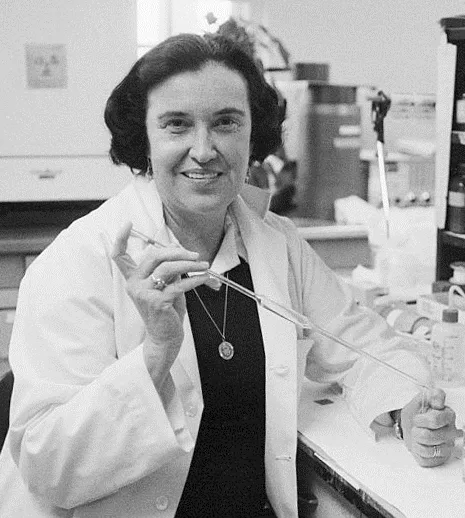
A Future Inspired by Yalow’s Vision
In celebrating Women’s History Month, we’ve taken a moment to reflect on the extraordinary achievements of Dr. Rosalyn Yalow, a true trailblazer in the field of diabetes research. Her development of the radioimmunoassay revolutionized our understanding of diabetes, providing a foundation upon which countless advancements in the diagnosis and treatment of this condition have been built. Yalow’s work exemplifies the profound impact that dedicated research can have on improving human health and the critical role of women in science and medicine.
As we look to the future, it’s clear that the fight against diabetes continues. The legacy of Dr. Yalow reminds us of the importance of supporting innovative research and the individuals behind these efforts. The Diabetes Research Connection offers a platform to do just that – by funding pioneering studies in Type 1 Diabetes, we can sustain the momentum of scientific breakthroughs and move closer to a world where the challenges of diabetes can be overcome.
We encourage you to join us in this mission. Your support, through donations to the Diabetes Research Connection, not only honors the legacy of Dr. Yalow but also empowers the next wave of researchers to make their mark on the world of diabetes research. Together, we can continue the journey toward groundbreaking discoveries and a brighter future for those living with diabetes.

